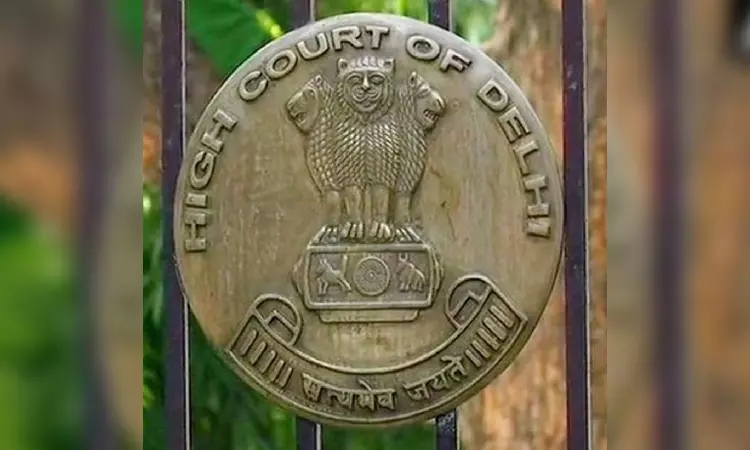HC refuses to recall order, asks Centre to release Rs 10 Cr to AIIMS for treatment of rare diseases
The court noted that the treatment of the 18 patients has already begun and discontinuation of the treatment would have a negative repercussion on their health

Delhi High Court (ANI)
NEW DELHI: The Delhi High Court has refused to recall its order directing the Centre to release Rs 10 crore to the AIIMS here to continue the treatment of 18 patients suffering from DMD, Gaucher disease and MPS.
The court noted that the treatment of the 18 patients has already begun and discontinuation of the treatment would have a negative repercussion on their health.
The court said the amount should be released within three working days, failing which the joint secretary of the Union health ministry has to be present in the court on the next date of hearing.
"Under such circumstances, withholding the treatment of these 18 patients would be completely unjust and contrary to law, as the same would have a debilitating effect on their general living condition and health.
"Since the treatment of these children has already begun, the amount as directed shall be released within the next three working days, failing which Latha Ganapathy, Joint Secretary, Ministry of Health and Family Welfare, shall remain present in court on the next date of hearing," Justice Prathiba M Singh said and posted the matter for further hearing on October 3.
The court dismissed an application filed by the Centre seeking a recall of the September 13 order by which the government was directed to release a sum of Rs 10 crore to the All India Institute of Medical Sciences (AIIMS), Delhi to continue the treatment of the 18 patients.
These children have already been administered medicines under the National Policy for Rare Diseases (NPRD), 2021.
The court said considering that the funds are being directed to be paid to the AIIMS, which is fully accountable for all the money spent, let the amount be released by the Centre.
In its application, the Centre had submitted that the budgeted amount for the AIIMS was already exhausted and there were other centres of excellence that had requested for release of funds.
To this, the court said from time to time, it has recognised that the AIIMS, Delhi is one of the nodal centres of excellence, actively treating patients suffering from rare diseases.
The Centre's counsel said of the allocated amount of Rs 34 crore, the AIIMS has spent only Rs 9 crore as of now.
Dr Madhulika Kabra of the AIIMS, who appeared in the court virtually, clarified that the total amount spent on the procurement of medicines for patients suffering from rare diseases would only be reflected after the medicines have been procured.
She said there are a number of patients for whom orders have already been placed and the amount has to be utilised for them, and added that the continuation of the treatment would not be possible without further allocation of money.
The AIIMS, in an affidavit, has also said 227 children were allocated funds under the NPRD, 2021. It has also provided a detailed chart indicating the type of disorder, nature of treatment, funds allocated, expenditure incurred and other relevant information pertaining to such cases.
Earlier this year, the high court had, while dealing with petitions filed by children suffering from several rare diseases, including Duchenne muscular dystrophy (DMD) and Mucopolysaccharidosis II or MPS II (Hunter syndrome), constituted a five-member committee for the implementation of the NRDP, 2021, including procurement and "indigenisation" of therapies and drugs for the patients.
DMD, one of the various forms of muscular dystrophy, is a rare genetic disease that almost exclusively affects boys and causes progressive weakness. MPS II is a rare disease that is passed on in families. It mainly affects boys and their bodies cannot break down a kind of sugar that builds bones, skin, tendons and other tissues.
The court had said the members of the National Rare Diseases Committee shall be the secretary of the Union health ministry or one of his nominees, the director general of the Indian Council of Medical Research (ICMR), the drug controller general of India as well as Dr Kabra and Dr Nikhil Tandon from the AIIMS.



